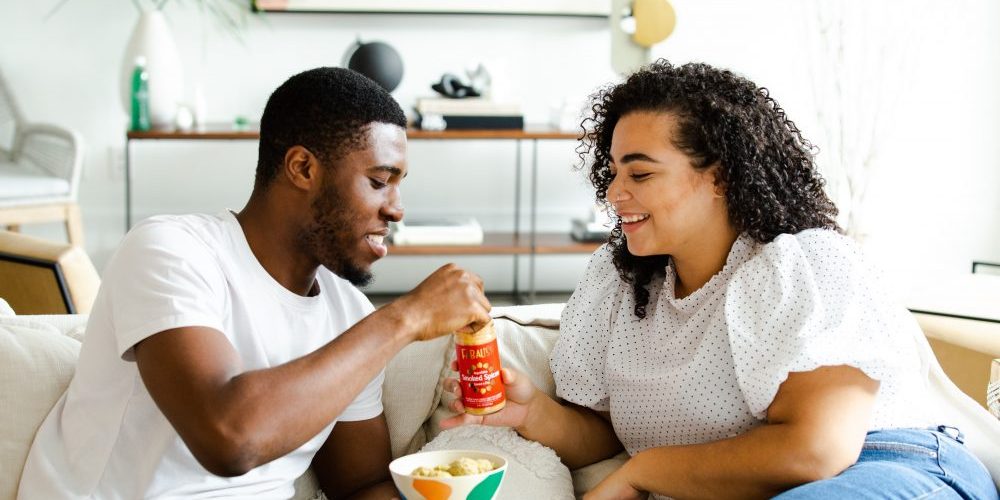With the cost of buying a house or flat increasing, deciding to buy property with friends, siblings or other family members can make the dream a reality. According to a recent survey, 38% of people would consider buying a home with friends, but is buying a house with friends a sensible, practical choice (and necessity for some), or is it a recipe for disaster?
The Pros of buying a property with a friend…
There can be many advantages to buying a home with a pal if you know them well. Being able to club together when it comes to raising a deposit on a property definitely helps, and knowing that your monthly mortgage is shared with another person, along with the costs of running a household can really take the pressure off financially, rather than leaving one person to struggle by themselves. It can also be easier to share as a co-owner rather than as a landlord and having to get a tenant in to rent a spare room. The responsibility for everything is shared with the friend who has invested.
Many sharers also enjoy the social benefits of living with a close friend or family member, and with many renters having flatmates anyway, those keen to buy property might wonder why they couldn’t enjoy the same sociable living situation, but own the property as well. A large number of people have said they would love to live with friends, but also wanted to own a property, so therefore buying with friends seems like an excellent solution. Buying a property with a friend or sibling is a way to get onto the ladder, and if the property increases in value over the years, it may be an investment in a future property.
The cons of buying with a friend…
As with any relationship, it’s easy for friends who live together to fall out, especially if you haven’t lived with each other in any capacity before. Fallings out can be over something relatively trivial, such as tidiness, but can also be over really big things, such as bills, property repairs and paying the mortgage. For those wary about buying with friends, the two main concerns were what would happen if they fell out or wanted to go their separate ways after a short period of time, and not trusting their friends to make the initial large payment.
As with any contract and when large sums of money are involved, you need to discuss everything in advance.
- You’ll need to discuss and agree on things like:
- The deposit arrangements
- Mortgage payment responsibilities
- Building insurance
- Council tax and other bills
- Unexpected costs for repairs.
It’s also important to know where current or future partners might stand in relation to the house – is everyone comfortable with them potentially moving in in the future? What would happen if one of you wanted to sell, or dissolve the agreement? What happens if one of you loses your job or gets into financial difficulty – who would cover those payments?
One of the most important pieces of advice we can give when it comes to buying a property with a friend, is to choose someone who is good with money!
You need to remember that this is as much a business arrangement as it is a social, living situation – suffering from stress because your friend has let you down financially can totally ruin a friendship.
Once you’ve discussed the ins and outs of buying a house together, it makes sense to sign a legally binding document that each party must stick to no matter what happens in the future.
Legal documents such as a cohabitation agreement and a deed of trust can be used to set out clearly how the property ownership is divided (remember that a joint ownership between two parties needn’t necessarily be on a fifty-fifty basis) and, crucially, what should happen under certain circumstances, for example if one party gets married and moves out, or wants to sell or let out their portion of the property.
It is also worth considering setting up a joint bank account for the mortgage payments, council tax and any other joint property-related expenditure. However, be aware that linking yourself to another person financially always carries a risk – your credit score may be affected by being connected with them.
How to get a joint mortgage
Although not all lenders are willing to lend to friends buying together, a number of companies – including major high-street banks – do now offer this kind of mortgage.
If you do choose to buy property this way, always remember that joint mortgage holders are “jointly and severally” liable for the mortgage debt, and this means that if your joint home-buying friend can’t pay their portion of the mortgage you will be fully liable to make up the shortfall. Be aware that you will want to be ‘tenants in common’ rather than ‘joint tenants’. This means that should the worst happen, your half of the property would be passed on to your next of kin if you died, rather than automatically being transferred to your friend.

